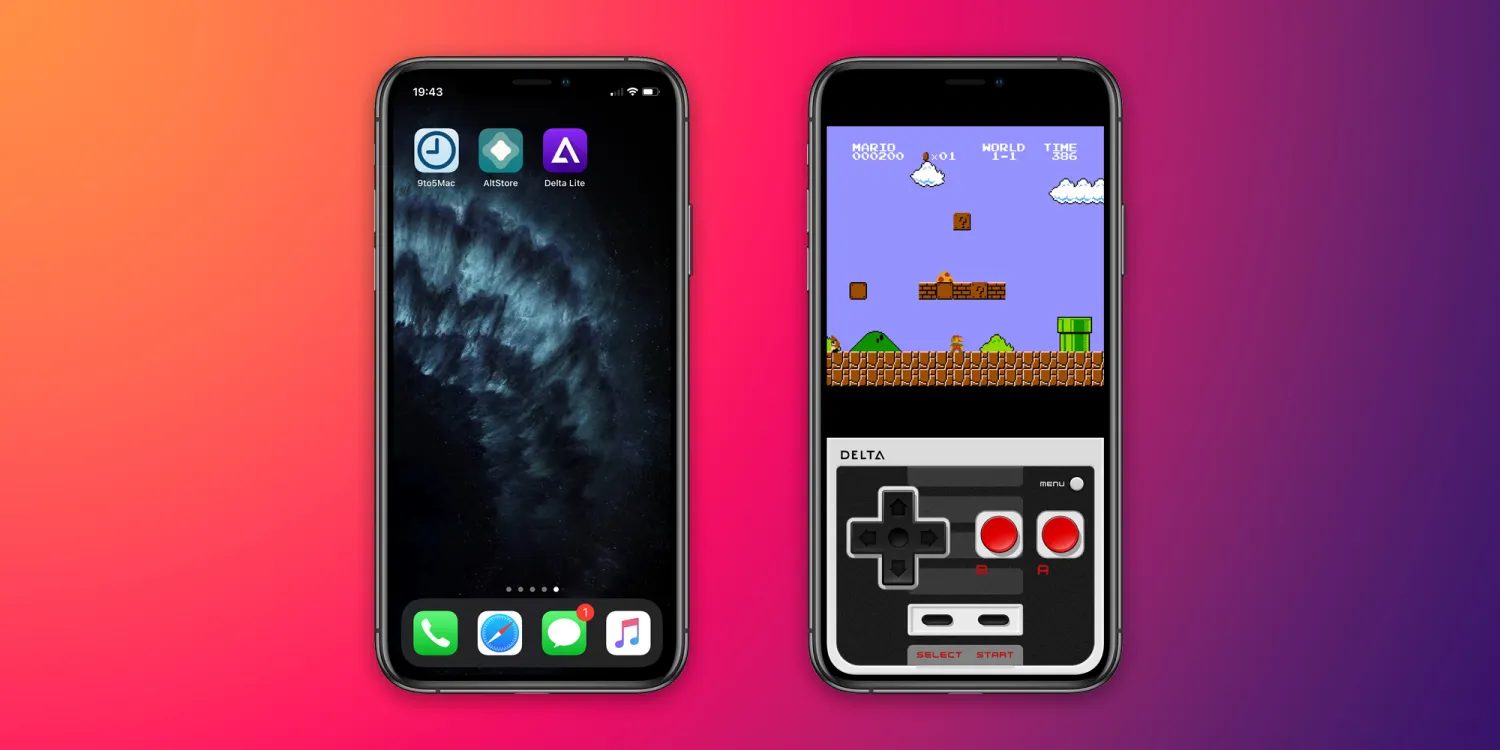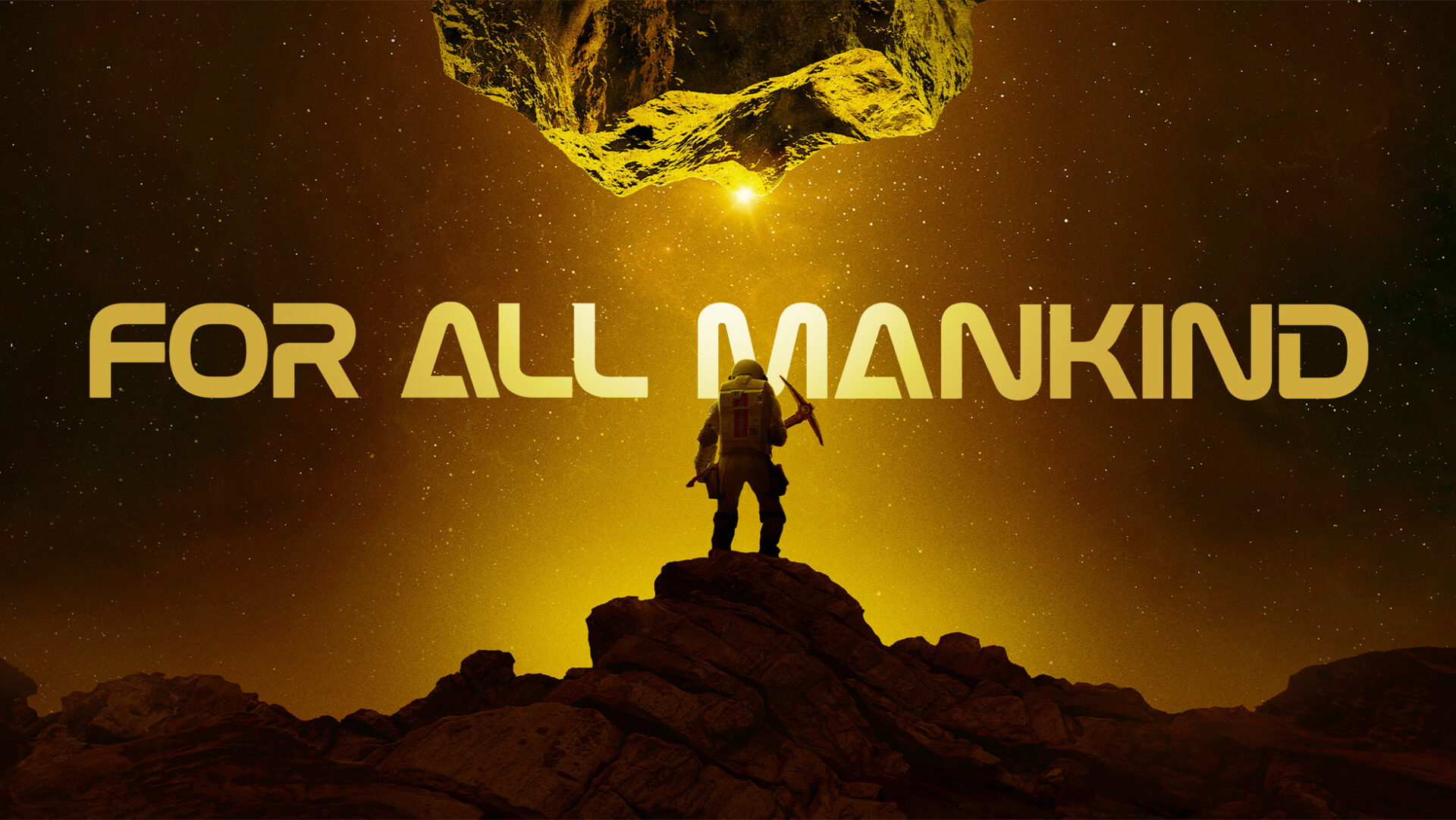
Apple Maps Now Surpasses Google Maps in Detail in 3.1% of the United States
Despite its horrible failure of a launch in 2012, Apple has been putting a ton of effort into improving its Apple Maps service.
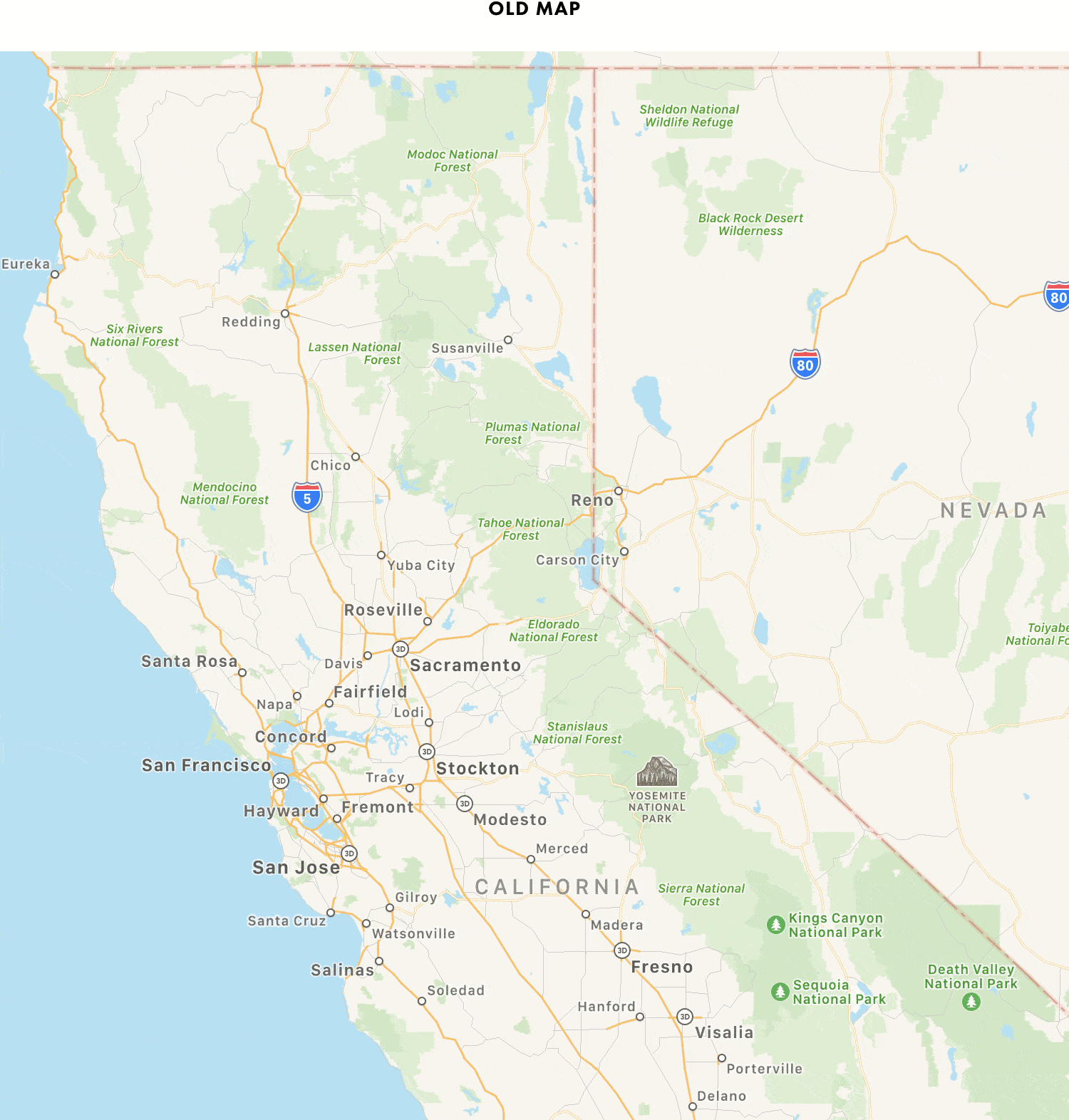
A new report from digital cartography blogger Justin O’Beirne attempts to shed some light on the improvements made to the service since its launch, even going as far as to say that Apple Maps’ detail now beats Google Maps in many respects, from things like building shapes to vegetation coverage.
According to O’Beirne, while Apple’s improved details are indeed impressive, they only cover 3.1% of the United States and 4.9% of its population, focused around Northern California. Regardless, some interesting differences are beginning to emerge between Apple Maps and those that Google uses for its own navigation software.
To start, Apple Maps now contains incredible natural cartographical detail, much more than its Google counterpart. Vegetation detail in Apple Maps is quite impressive, with the service even going as far as to include the detail of grass between lanes of a highway and borders around individual houses and buildings.

O’Beirne says that Apple is likely algorithmically extracting vegetation data from satellite imagery, much like Google does, allowing it to add visual features such as beaches, harbors, parking lots, and sports fields that weren’t included before.
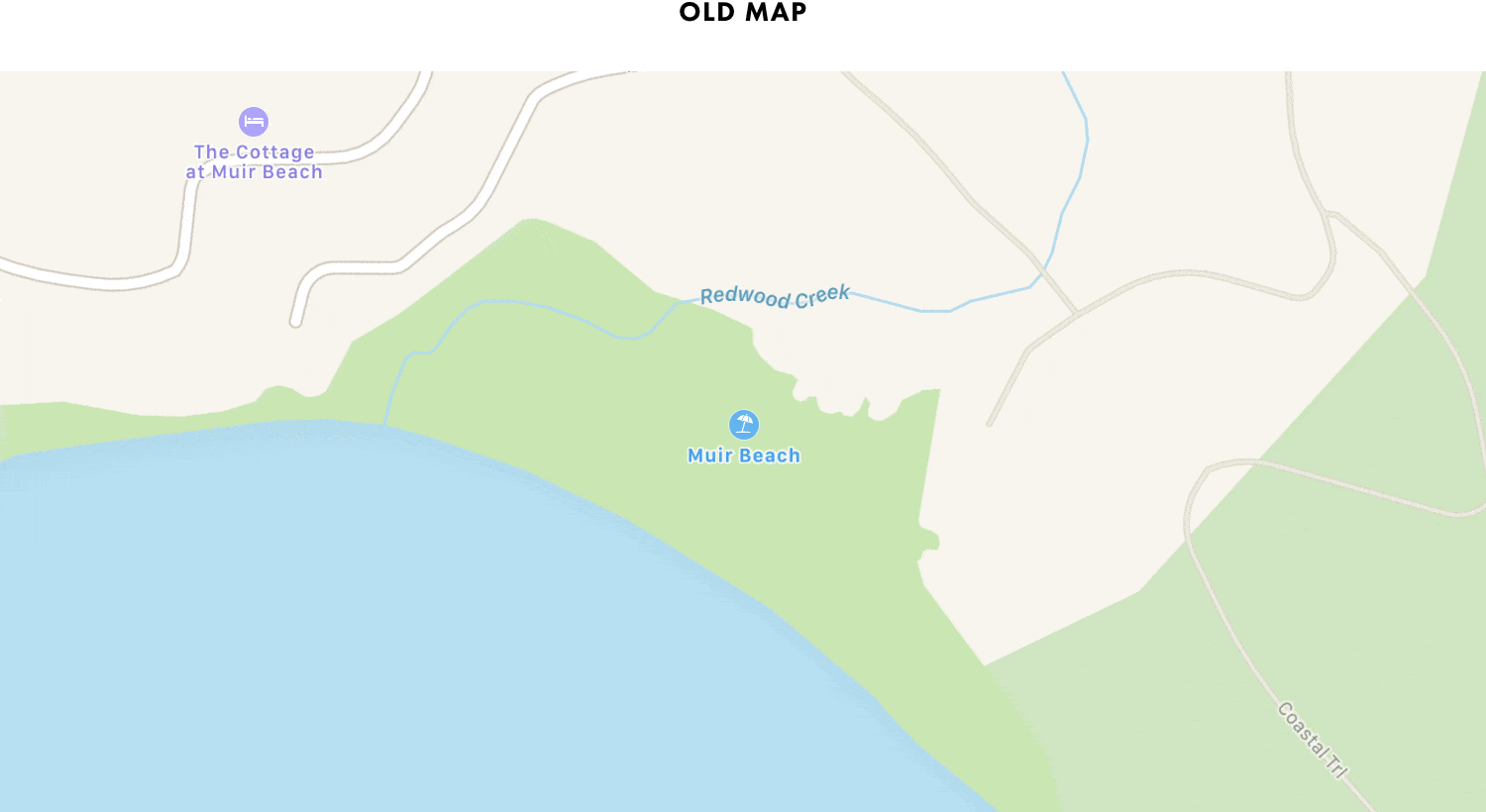
Apple Maps has also updated building details in San Francisco, for example, but differences and inconsistencies between building models lead O’Beirne to infer that humans are tracing the buildings using satellite imagery rather than algorithmically.
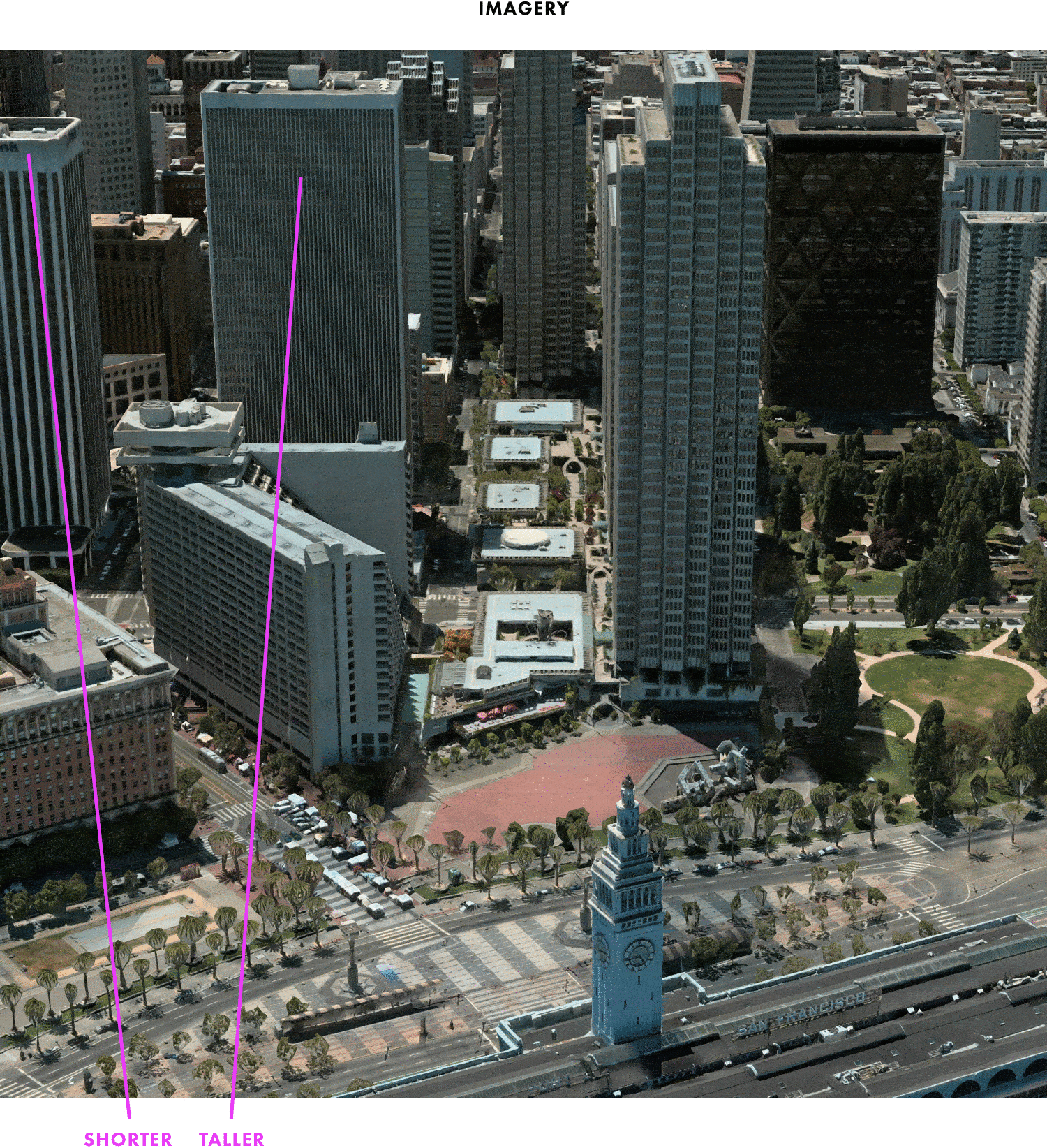
However, looking at Apple’s business data, O’Beirne concludes that Google is still ahead. Google appears to be algorithmically extracting business names from signs along roads whereas Apple seems to be using Yelp, which has a much smaller database than Google.

Make sure to read O’Beirne’s full in-depth comparison as it provides insight into how Apple has managed to improve its maps data and exceed that of Google Maps in some scenarios.
